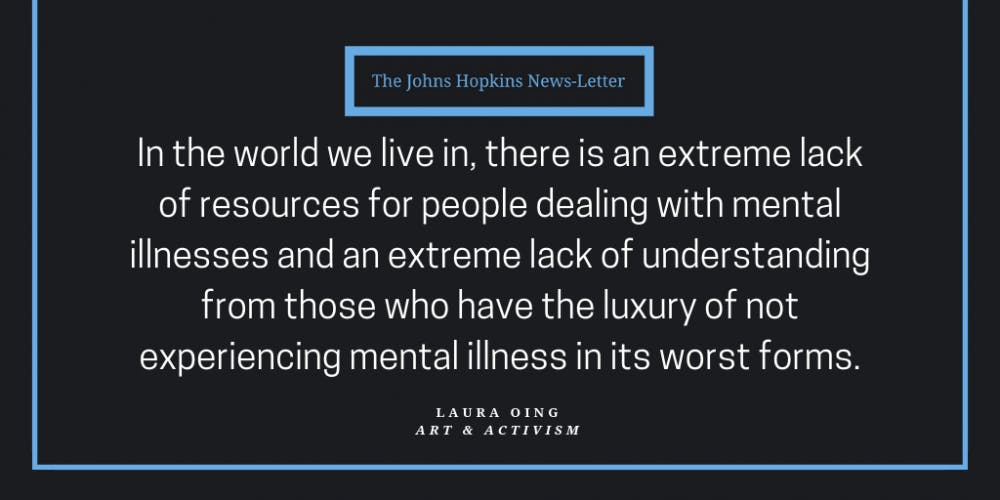
Content warning: The following article discusses serious subject matter such as depression and suicide.
If there’s one thing I’m pretty sure we can all agree on, it’s that being a teenager is rough. There’s something about being pressured and feeling like you have to have your whole life together that suddenly pops up once you turn a certain age. And every adult (during at least one point in their lives) knows this because they went through it themselves. There’s certainly no shortage of novels written for young adults and movies featuring coming-of-age stories filled with trials and tribulations. And there isn’t any real harm in seeing young people eventually triumph in the end over their struggles. Perhaps this could lead to some unrealistic expectations for young audiences, but I feel like, soon enough, you can discover that it’s a “dog eat dog” world we live in. I know I myself love these kinds of stories, maybe because there’s something about seeing someone else go through similar problems that makes me feel less alone in my struggle.
This week, I want to talk about one of my favorite coming-of-age stories, which happens to be both a novel and a film. It’s Kind of a Funny Story was published in 2006 by author Ned Vizzini and released as a film directed by Anna Boden and Ryan Fleck in 2010. I first found it as a movie while (surprise!) scrolling around on the internet. Ever since IMDb started adding suggestions based on movies I’d looked at in the past, it became even easier to find new things to add to my watchlist. Soon after finding It’s Kind of a Funny Story, I borrowed it from our local library. I loved it so much the first time that I watched it again the next day, this time making my parents join me. A few years later, I decided to read the book, and was not disappointed by either version of the story.
In It’s Kind of a Funny Story, a depressed and anxious 16-year-old boy named Craig checks himself into a hospital one night because he wants to kill himself. Between the mounting schoolwork, his family’s high expectations for him and the stress of being an awkward guy, Craig feels like he’s losing control over his life. Once processed and admitted to the hospital, Craig finds out that not only has the teen wing of the hospital’s mental health clinic been temporarily closed, but also that he must stay in the hospital (among his adult neighbors) for a minimum of at least five days. While there, he meets a handful of teens and a variety of adults, each struggling with their own mental health in their own ways. And in these five short days of therapy, group art projects and bonding over meals, Craig is able to reground himself in life. Of course, the process of healing is never this straightforward or quick, and the movie understands this. For this reason, this movie resonated with me as a more accurate look at what living with depression can look like. It’s a movie that is able to balance the gravity of a subject like mental illness while still bringing in funny moments, and in that way the title couldn’t be truer.
For many reasons, mental health is an important issue to me. In the world we live in, there is an extreme lack of resources for people dealing with mental illnesses and an extreme lack of understanding from those who have the luxury of not experiencing mental illness in its worst forms. How do we as a society improve these conditions? Perhaps the first thing we need to do is increase awareness of mental health as a valid and important aspect of anyone’s personal health, maybe through reforms in our education system to incorporate lessons about mental health, and maybe through representation in the media. But too often I feel like I see movies and TV shows that depict people with mental illness as crazy, insane and dangerous. I think the reason I love this movie so much is that it does a good job of depicting what it can be like to live with depression. There’s obviously no one way to experience mental illness. But the fact that this story exists in a way that acknowledges both the struggles of living with mental illness, as well as the little victories that can come with hard work and help, gives me hope.
If you or someone you know is suffering, the National Suicide Prevention Lifeline provides free, 24/7 confidential support through their toll-free hotline at 1 (800) 273-8255.
The Counseling Center can be reached at (410) 516-8278 during normal business hours. In case of an emergency outside of normal hours, a counselor on call can be reached through security at (410) 516-7777. Campus Ministries may be reached at (410) 516-1880.





